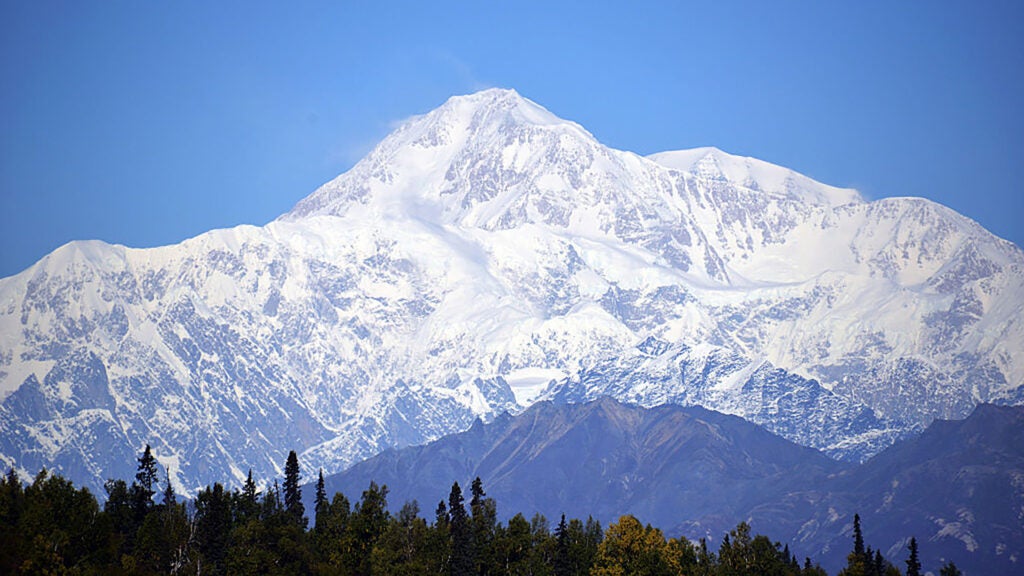On January 20, 2025, President Donald Trump signed an executive order to officially rename Alaska’s iconic Denali, the highest peak in North America, back to its former title, Mount McKinley. This move has reignited the long-standing debate over the mountain’s name, which holds cultural significance and historical context for many Alaskans and Indigenous communities.
The Historical Context of Denali and Mount McKinley
The mountain, standing at an impressive 20,310 feet, was known as Denali, a name derived from the Koyukon Athabascan language, meaning “the high one” or “the great one.” The name was changed to Mount McKinley in the early 20th century, paying homage to William McKinley, the 25th President of the United States, who was assassinated in 1901. This name was officially restored to Denali by former President Barack Obama in 2015, addressing the local preference, as the state of Alaska has sought to revert to the traditional name since 1975.
Implications of Trump’s Executive Order
The executive order signed by Trump undoes Obama’s action and sets in motion a 30-day period for the name change to take effect. While the mountain will regain its name Mount McKinley, Denali National Park and Preserve will retain its title. This recent development has prompted mixed reactions, especially among those whose livelihoods depend on the peak, including climbers, guides, and local residents.
Local Perspectives on the Name Change
Despite the presidential decision, many Alaskans, including politicians, guides, and local mountaineers, have expressed disappointment at the reversion to Mount McKinley. Alaska Senator Lisa Murkowski, a Republican, emphasized the cultural importance of the name Denali, stating that it has been recognized by Alaska’s Indigenous people for thousands of years. The sentiment echoes throughout the climbing community, where Denali is firmly embedded in local heritage.
The Voice of the Climbing Community
Prominent figures in the climbing community, such as mountaineer Conrad Anker and ski mountaineer Melissa Arnot Reid, voiced their perspectives on the name change. Anker reflected on the rightful recognition of the mountain’s Indigenous name in 2015, arguing that reverting the name disrespects the local culture. Arnot Reid added that using traditional names deepens visitors’ connections to the land, reinforcing the idea that Denali is more than just a geographical point; it symbolizes Alaskan identity.
Public Opinion and Surveys
A recent survey conducted by Alaska Survey Research indicated that a majority of Alaskans oppose the change, revealing that 54 percent of respondents favored keeping the name Denali, while only 26 percent supported reverting to Mount McKinley. This illustrates a clear preference among the local populace, who value the mountain’s Indigenous name over a title associated with a historical figure who never set foot in Alaska.
Future of the Name
Despite the official change, many climbers and locals have asserted that they will continue to use the name Denali. Notable climber Jon Krakauer stated in an email that he and many others would refuse to adopt the new designation, highlighting a disconnect between official declarations and community sentiments. Keith Sidle, a mountaineering instructor, echoed this sentiment, emphasizing that naming changes on paper do not impact the mountain itself or its significance to the people.
Conclusion: The Enduring Legacy of Denali
The ongoing debate around the name of North America’s highest peak highlights the importance of local heritage and Indigenous history. Regardless of the political landscape, Denali remains a vital aspect of Alaskan culture and identity. As the discussion continues, it’s clear that the mountain’s true name, rooted in its Indigenous past, will endure in the hearts and minds of those who cherish the breathtaking beauty and rich history of this remarkable landscape.
